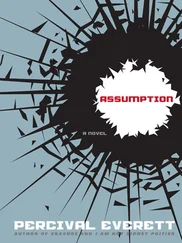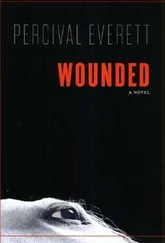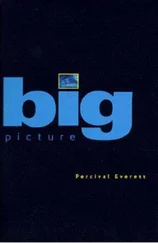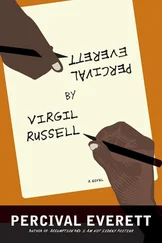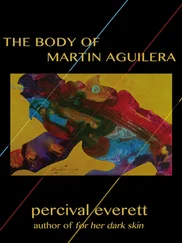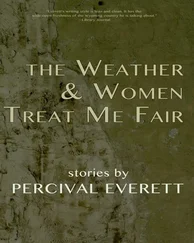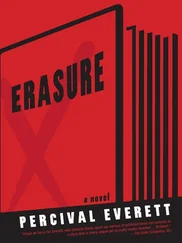“I think the lion went down.”
Rosendo nodded his agreement and that was the way they went, retracing their steps of the previous day.
“There is one thing,” Mauricio said.
“What’s that?” Rosendo asked.
“We were closer to the beast than anyone else. You were near enough to smell the lion’s breath.”
“Yes, I was,” Rosendo said.
The Appropriation of Cultures

Daniel Barkley had money left to him by his mother. He had a house that had been left to him by his mother. He had a degree in American Studies from Brown University that he had in some way earned, but that had not yet earned anything for him. He played a 1940 Martin guitar with a Barkus-Berry pickup and drove a 1976 Jensen Interceptor, which he had purchased after his mother’s sister had died and left him her money because she had no children of her own. Daniel Barkley didn’t work and didn’t pretend to need to, spending most of his time reading. Some nights he went to a joint near the campus of the University of South Carolina and played jazz with some old guys who all worked very hard during the day, but didn’t hold Daniel’s condition against him.
Daniel played standards with the old guys, but what he loved to play were old-time slide tunes. One night, some white boys from a fraternity yelled forward to the stage at the black man holding the acoustic guitar and began to shout, “Play ‘Dixie’ for us! Play ‘Dixie’ for us!”
Daniel gave them a long look, studied their big-toothed grins and the beer-shiny eyes stuck into puffy, pale faces, hovering over golf shirts and chinos. He looked from them to the uncomfortable expressions on the faces of the old guys with whom he was playing and then to the embarrassed faces of the other college kids in the club.
And then he started to play. He felt his way slowly through the chords of the song once and listened to the deadened hush as it fell over the room. He used the slide to squeeze out the melody of the song he had grown up hating, the song the whites had always pulled out to remind themselves and those other people just where they were. Daniel sang the song. He sang it slowly. He sang it, feeling the lyrics, deciding that the lyrics were his, deciding that the song was his. Old times there are not forgotten … He sang the song and listened to the silence around him. He resisted the urge to let satire ring through his voice. He meant what he sang. Look away, look away, look away, Dixieland.
When he was finished, he looked up to see the roomful of eyes on him. One person clapped. Then another. And soon the tavern was filled with applause and hoots. He found the frat boys in the back and watched as they stormed out, a couple of people near the door chuckling at them as they passed.
Roger, the old guy who played tenor sax, slapped Daniel on the back and said something like, “Right on” or “Cool.” Roger then played the first few notes of “Take the A Train” and they were off. When the set was done, all the college kids slapped Daniel on the back as he walked toward the bar where he found a beer waiting.
Daniel didn’t much care for the slaps on the back, but he didn’t focus too much energy on that. He was busy trying to sort out his feelings about what he had just played. The irony of his playing the song straight and from the heart was made more ironic by the fact that as he played it, it came straight and from his heart, as he was claiming Southern soil, or at least recognizing his blood in it. His was the land of cotton and hell no, it was not forgotten. At twenty-three, his anger was fresh and typical, and so was his ease with it, the way it could be forgotten for chunks of time, until something like that night with the white frat boys or simply a flashing blue light in the rearview mirror brought it all back. He liked the song, wanted to play it again, knew that he would.
He drove home from the bar on Green Street and back to his house where he made tea and read about Pickett’s charge at Gettysburg while he sat in the big leather chair that had been his father’s. He fell asleep and had a dream in which he stopped Pickett’s men on the Emmitsburg Road on their way to the field and said, “Give me back my flag.”

Daniel’s friend Sarah was a very large woman with a very large Afro hairdo. They were sitting on the porch of Daniel’s house having tea. The late fall afternoon was mild and slightly overcast. Daniel sat in the wicker rocker while Sarah curled her feet under her on the glider.
“I wish I could have heard it,” Sarah said.
“Yeah, me too.”
“Personally, I can’t even stand to go in that place. All that drinking. Those white kids love to drink.” Sarah studied her fingernails.
“I guess. The place is harmless. They seem to like the music.”
“Do you think I should paint my nails?”
Daniel frowned at her. “If you want to.”
“I mean really paint them. You know, black, or with red, white, and blue stripes. Something like that.” She held her hand out, appearing to imagine the colors. “I’d have to grow them long.”
“What are you talking about?”
“Just bullshitting.”
Daniel and Sarah went to a grocery market to buy food for lunch and Daniel’s dinner. Daniel pushed the cart through the Piggly Wiggly while Sarah walked ahead of him. He watched her large movements and her confident stride. At the checkout, he added a bulletin full of pictures of local cars and trucks for sale to his items on the conveyer.
“What’s that for?” Sarah asked.
“I think I want to buy a truck.”
“Buy a truck?”
“So I can drive you around when you paint your nails.”

Later, after lunch and after Sarah had left him alone, Daniel sat in his living room and picked up the car-sale magazine. As he suspected, there were several trucks he liked and one in particular, a 1968 Ford three-quarter ton with the one thing it shared with the other possibilities, a full rear cab window decal of the Confederate flag. He called the number the following morning and arranged with Barb, Travis’s wife, to stop by and see the truck.

Travis and Barb lived across the river in the town of Irmo, a name that Daniel had always thought suited a disease for cattle. He drove around the maze of tract homes until he found the right street and number. A woman in a housecoat across the street watched from her porch, safe inside the chain-link fence around her yard. From down the street a man and a teenager, who were covered with grease and apparently engaged in work on a torn-apart Dodge Charger, mindlessly wiped their hands and studied him.
Daniel walked across the front yard, through a maze of plastic toys, and knocked on the front door. Travis opened the door and asked in a surly voice, “What is it?”
“I called about the truck,” Daniel said.
“Oh, you’re Dan?”
Daniel nodded.
“The truck’s in the backyard. Let me get the keys.” He pushed the door to, but it didn’t catch. Daniel heard the quality of the exchange between Travis and Barb, but not the words. He did hear Barb say, as Travis pulled open the door, “I couldn’t tell over the phone.”
“Got ’em,” Travis said. “Come on with me.” He looked at Daniel’s Jensen as they walked through the yard. “What kind of car is that?”
“It’s a Jensen.”
“Nice looking. Is it fast?”
Читать дальше



